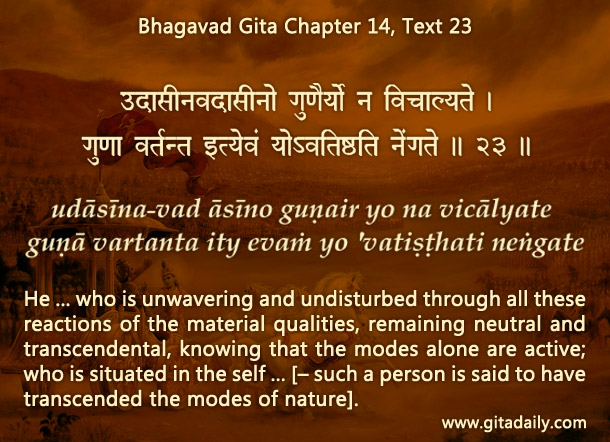Some people ask, “We often act on our feelings such as anger, frustration or dejection, and later regret those actions. How can we avoid such impulsive actions?”
By understanding that we are more than our feelings. We are spiritual beings who are feelers of our feelings and who can also be observers and processors of our feelings.
The Bhagavad-gita (14.22-23) recommends that we become observers of our consciousness, noting the various feelings that arrive there. We can observe those feelings just as we might observe various visitors arriving in a city. In this section, the Gita outlines how we can transcend the influence of the three modes of material nature. The modes are subtle forces that shape the interaction between matter and consciousness. The Gita mentions the mentalities triggered by the three modes – luminosity, hyperactivity and lethargy. It recommends that whenever these mentalities arise in our consciousness, we identify them as such without identifying ourselves with them.
Isn’t such distancing from our emotions difficult? Yes, but it is possible by cultivating introspectiveness. And it becomes easier when we stay aware of our spiritual identity through philosophical knowledge and yogic practice.
When we thus distance ourselves from our mental world, we can feel our feelings without falling for them. That is, we can notice and acknowledge our feelings: “I am feeling angry now because this person is so rude.” If we deny our feelings, they often attack us with greater vengeance. But when we objectively acknowledge their presence and verbalize the reason for those feelings, that acknowledgement often decreases their pressure, just as aggrieved people often become calmer when they feel understood.
With our impulses thus decreased by introspection, we can evaluate whether the reactions impelled by our feelings are disproportionate and, if so, choose a more appropriate response.
To know more about this verse, please click on the image
Explanation of article:
Podcast:


Leave A Comment